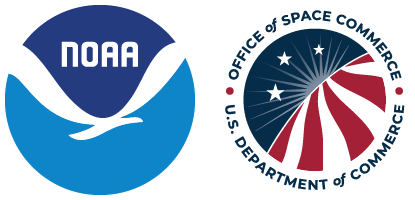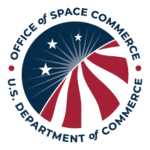Secretary Ross Hosts Space Startup Summit

On October 21, 2019, Secretary of Commerce Wilbur Ross hosted a Space Startup Summit in the Commerce Department auditorium. The event brought together space entrepreneurs, venture capitalists, technology accelerators, and federal agencies to explore ways the government can foster and leverage startup innovation.
Secretary Ross’s opening remarks set the tone by reaffirming that space commerce remains one of his top priorities. He called for federal agencies to engage with space companies during their startup phase, as “strategic U.S. government purchases from early-stage start-ups create the foundation companies need to seek additional private capital.”
View full remarks at commerce.gov
Secretary Ross then moderated a discussion with VC’s and tech accelerators on the state of the space startup market.
The audience heard a series of “Lightning Talks” from five early stage startups innovating in different aspects of space commerce, including satellite towing, lunar mission support, additive manufacturing, human habitation, and optical communications.

Major General Nina Armagno delivered keynote remarks on the Air Force’s initiatives to harness commercial space innovation, including Air Force pitch days and space accelerators.
Finally, a panel moderated by Michael Beavin of the National Space Council discussed additional efforts across the government to promote commercial space startups, including lessons learned and challenges to be addressed.

To fully leverage innovation, the government needs to become a better partner and customer of early phase space companies. It needs to better understand business needs. The panel made the following observations in this regard:
- The government should be transactional and actually buy more things. Agencies can bypass slow, requirements-based acquisition processes by leveraging their “other transactional authorities” (OTAs). Problem statements can substitute for requirements, resulting in more flexible, agile contracts negotiated on business-friendly terms.
- The government has sufficient authority to conduct flexible contracting; the challenge is effecting cultural change within program acquisition organizations. This is happening now, but there is room to improvement as agencies gain experience with startups and share lessons learned.
- Government and industry decision cycles are often out of sync; mutual learning is needed. Government should favor shorter development timelines whenever possible.
- Government should be more willing to try hybrid architectures involving a mix of government and commercial solutions.
- Government should do more to signal its future needs to industry.
- Government can do a better job pointing industry to sources of contracts and funding to solve government problems.
- Government is good at seeding initial ideas through SBIRs, but it often fails to follow through in later stages and buy new commercial space services when they come to market.
- Government needs more flexibility with funds — additional discretionary funding so agencies can take advantage of innovative opportunities that pop up. Government needs to normalize the ability to procure commercial space services as commodities.
- Over-classification of space programs stifles innovation and partnerships with startups, and needs to be avoided within government. Startups may be able to partner more with established government contractors for facility clearances.
For the complete program agenda, please see the event announcement.



